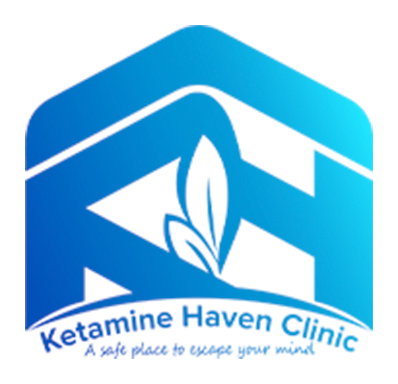Post-traumatic stress disorder (PTSD) and substance abuse often go hand in hand. Individuals who have experienced traumatic events may turn to substances as a way to cope with the overwhelming emotions and memories associated with their trauma. This article explores the connection between PTSD and substance abuse, providing a deeper understanding of the relationship, its impact, and treatment approaches.
Understanding PTSD: A Brief Overview
Defining PTSD
Post-traumatic stress disorder (PTSD) is a complex psychiatric condition that can manifest following exposure to a traumatic event. This can encompass a wide range of experiences, including but not limited to physical or sexual assault, natural disasters, combat situations, or severe accidents. The impact of PTSD can be profound, affecting not only the individual’s mental health but also their physical well-being and social relationships.
Common Symptoms and Triggers of PTSD
Individuals may also exhibit hypervigilance, avoidance behaviors, and negative alterations in mood and cognition. These symptoms can be triggered by various stimuli, such as specific sounds, smells, or locations that serve as reminders of the traumatic event.
Research has shown that individuals with a history of trauma are more vulnerable to developing PTSD following subsequent stressors. This heightened risk underscores the importance of early intervention and support for those who have experienced trauma. It is crucial for healthcare providers and support networks to be aware of the potential link between trauma, PTSD, and co-occurring conditions, such as substance abuse.
Substance Abuse: An In-Depth Look
What Constitutes Substance Abuse?
Substance abuse refers to the harmful or excessive use of substances such as alcohol, drugs, or prescription medications. It is essential to differentiate between occasional or moderate substance use and abuse, which often involves compulsive, problematic behavior and negative consequences.
Substance abuse is a complex issue that can manifest in various forms, from binge drinking to opioid addiction. It not only affects the individual engaging in the behavior but also has far-reaching implications for their loved ones and society as a whole. Understanding the root causes of substance abuse, such as genetic predispositions, environmental factors, and mental health conditions, is crucial in developing effective prevention and treatment strategies.
The Physical and Psychological Impact of Substance Abuse
Substance abuse can have detrimental effects on both physical and mental health. Prolonged substance abuse can lead to various health issues, including liver damage, heart problems, and cognitive impairment. Moreover, substance abuse can exacerbate existing mental health conditions or contribute to the development of new ones.
Individuals struggling with substance abuse often face a myriad of challenges, including social stigma, legal consequences, and financial hardships. The cycle of addiction can be incredibly difficult to break without proper support and intervention. Recognizing the signs of substance abuse and offering non-judgmental assistance to those in need are critical steps in addressing this pervasive issue in our society.
The Intersection of PTSD and Substance Abuse
The Prevalence of Co-Occurring PTSD and Substance Abuse
Research suggests that individuals with PTSD are more likely to develop substance abuse problems compared to the general population. According to studies, up to 50% of individuals seeking treatment for substance abuse also meet the criteria for PTSD.
It is key to note that the relationship between PTSD and substance abuse is bidirectional. This means that not only does PTSD increase the risk of developing substance abuse issues, but substance abuse can also exacerbate symptoms of PTSD, creating a vicious cycle that is challenging to break without proper intervention and support.
Theories Behind the Link
Several theories have been proposed to explain the connection between PTSD and substance abuse. One theory suggests that individuals with PTSD may use substances as a form of self-medication to alleviate their emotional pain and distress. Drugs and alcohol can temporarily numb emotional responses and provide a sense of relief. However, this coping mechanism often leads to dependence and further exacerbates symptoms of both disorders.
Another theory suggests that the physiological changes in the brain caused by trauma and stress may make individuals more susceptible to addiction. Trauma can alter the brain’s reward system and increase the risk of impulsive behavior, making it harder for individuals to resist substance abuse.
The co-occurrence of PTSD and substance abuse can also be influenced by environmental factors, such as a lack of social support, exposure to ongoing stressors, and limited access to mental health resources. These external factors can contribute to the development and maintenance of both disorders, highlighting the importance of addressing not only the individual’s internal struggles but also the external challenges they face in their daily lives.
The Impact of Dual Diagnosis on Treatment Approaches
Challenges in Diagnosing PTSD and Substance Abuse
Diagnosing both PTSD and substance abuse simultaneously can be challenging due to overlapping symptoms and the stigma associated with mental health and addiction. Many individuals may seek treatment for one disorder while the other remains undiagnosed.
The complexity of dual diagnosis cases is heightened by the fact that individuals with PTSD may turn to substance abuse as a way to self-medicate and cope with their symptoms. This self-medicating behavior can mask the underlying PTSD symptoms, making it difficult for healthcare providers to accurately diagnose and treat both conditions.
Effective Treatment Strategies for Co-Occurring Disorders
Treating co-occurring disorders requires an integrated approach that addresses both PTSD and substance abuse. Therapy modalities such as cognitive-behavioral therapy (CBT), ketamine infusions, and eye movement desensitization and reprocessing (EMDR) have shown positive results in treating PTSD and substance abuse concurrently.
A holistic approach to treatment that considers the individual’s unique experiences and challenges is crucial for long-term success. This may involve incorporating mindfulness practices, art therapy, or even outdoor activities to complement traditional therapy sessions and cater to the individual’s specific needs.
In addition to therapy, support groups and medication-assisted treatment may be beneficial for individuals with co-occurring disorders. These approaches can help individuals develop healthy coping mechanisms and address underlying issues contributing to substance abuse.
The Role of Support Systems in Recovery
The Importance of Family and Friends in the Healing Process
Having a strong support system can greatly impact an individual’s recovery from both PTSD and substance abuse. Family and friends can provide emotional support, understanding, and encouragement throughout the treatment process. Their involvement can help individuals feel a sense of belonging and reduce feelings of isolation.
Family and friends can also assist in practical ways, such as providing transportation to therapy sessions, helping with daily tasks, or simply being a listening ear during difficult times. This practical support can alleviate some of the burdens that individuals may face while going through recovery, allowing them to focus more on their healing journey.
Community Resources for Those Struggling with PTSD and Substance Abuse
Communities and organizations play a vital role in providing resources and support for individuals struggling with PTSD and substance abuse. These resources may include counseling services, support groups, helplines, and educational materials. Seeking help from these community resources can make a significant difference in an individual’s journey towards recovery.
Community resources often offer specialized programs tailored to meet the unique needs of individuals dealing with PTSD and substance abuse. These programs may incorporate holistic approaches, such as art therapy, yoga, or mindfulness practices, to complement traditional treatment methods. Engaging in these diverse resources can enhance the recovery process and provide individuals with a comprehensive support network.
Parting Thoughts
PTSD and substance abuse are closely linked, with individuals often turning to substances as a way to cope with their traumatic experiences. Recognizing this connection is crucial for effective treatment and support. By addressing both disorders simultaneously, individuals can find a path to recovery and regain control of their lives. To learn about the mental health management options we offer, reach out to us at Ketamine Haven Clinic today to schedule a consultation.







